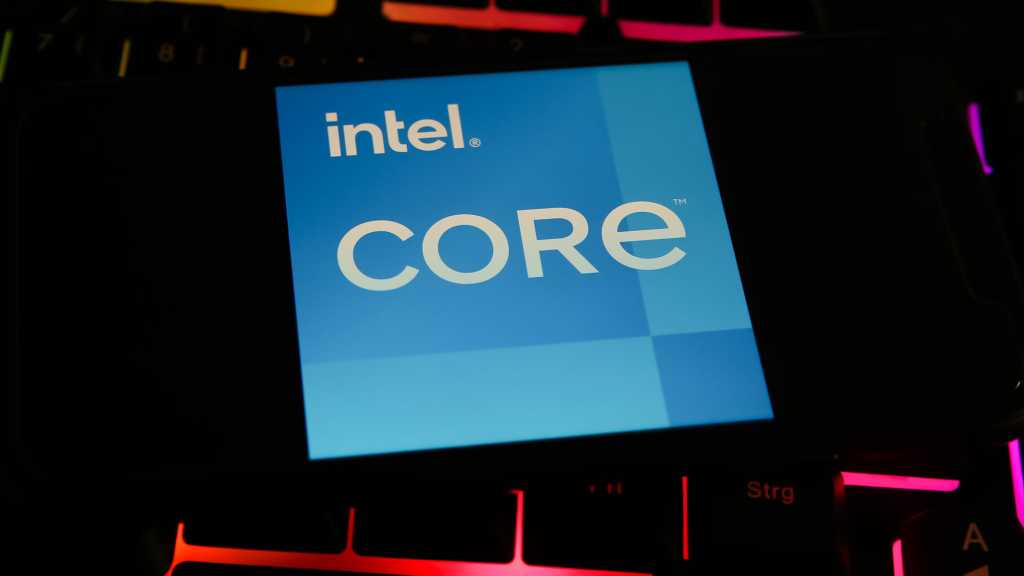Oh no.
Downfall, Inception, Meltdown, Spectre, I hate to see new vulnerabilities, but their naming choices are solid.
They should name them after their investors and board members.
Gelsinger, McKeon, and Lavender do have a nice ring to them.
Sounds like Bond movies.
Intel claims most consumer software shouldn’t see much impact, outside of image and video editing workloads…
But that’s, like the one place other than games where consumers are looking for performance. What’s left, web browsing and MS Office?
"whew* my horrible bubble sort implementation is safe from performance impacts
It’s not they aren’t impacted only you “don’t see the impact” as noticeably.
I just skimmed through the article and it seems like this vulnerability is only really meaningful on multi-user systems. It allows one user to access memory dedicated to other users, letting them read stuff they shouldn’t. I would expect that most consumer gaming computers are single-user machines, or only have user accounts for trusted family members and whatnot, so if this mitigation causes too much of a performance hit I expect it won’t be a big risk to turn it off for those particular computers.
this vulnerability is only really meaningful on multi-user systems
Well, that says it all. CPU manufacturers have no incentive at all to secure the computations of multiple users on a single CPU (or cores on the same die)… why would they? They make more cash if everyone has to buy their own complete unit, and they can outsource security issues to ‘the network’ or ‘the cloud’…
Years ago when I was in University this would have been a deathblow to the entire product line, as multi-user systems were the norm. Students logged into the same machines to do their assignments, employees logged into the same company servers for daily tasks.
I guess that isn’t such a thing any more. But wow, what a sh*tshow modern CPU architecture has become, if concern for performance has completely overridden proper process isolation and security. We can’t even trust that a few different users on the same machine can be separated properly due to the design of the CPU itself?
Processor manufacturers target their devices and sales towards cloud computing so they have a huge incentive to avoid having issues like these. It’s ridiculous to suggest otherwise.
Install backdoors and sell that info to governments and companies, then years later reveal the issue to justify downgrading performance of older CPUs to encourage people to upgrade.
Just feels like Prism all over again.
It took them a year for a microcode fix and it still has a performance loss of 50% in some cases? Ew
50% 💀
Ha-ha. My chip’s too old to be affected. I don’t see my architecture on the list.
I knew putting off upgrading for around a decade would pay off. (Windows Update tells me my PC is not “ready” for Windows 11 due to its hardware, either. Oh no, whatever shall I do.)
Dont the older chips suffer from a greater performance drop from spectre and meltdown vulnerabilities?
Every article is a copy paste of the same bullshit talking about the vulnerability and pointing to the stupid cryptic list of processors that requires you to jump through hoops to read it. You can’t just search for your processor in a database I mean fuck that would take them at least an a couple hours of their precious time to set up and they have only had a year. How do you fix it? Why with a microcode update of course!!..from where you ask? Well don’t worry just look at the cryptic list it will tell you if you need a microcode update!!
Fuck every article about this shit. Anyone wanna bust an Eli5 on how to fix this problem for people? (I was assuming it’s a BIOS update but the articles have only confused me further)
You can’t just search for your processor in a database I mean fuck that would take them at least an a couple hours of their precious time to set up and they have only had a year. How do you fix it?
This page tells you how to get your CPUID: https://www.intel.com/content/www/us/en/support/articles/000006831/processors/processor-utilities-and-programs.html
Then search for the CPUID here: https://www.intel.com/content/www/us/en/developer/topic-technology/software-security-guidance/processors-affected-consolidated-product-cpu-model.html
I figured out how to do it fairly quickly but it would be a hell of a lot easier if people could just type in “11700K” in a box on a web page or something and it could just tell them. Or they could have added a little bit of code to their CPU ID utility that says “yupp your processor is effected by the flaw”. I am mostly annoyed at all this not for me but for all the people who would read those pages and the contents would seem like an insane foreign language to them all while articles are telling them it’s a major security flaw that would allow people to steal their encryption keys.
. Or they could have added a little bit of code to their CPU ID utility that says “yupp your processor is effected by the flaw”.
That is a fair point.
It’ll probably just be something that happens through ordinary OS updates tbh (though I understand you’d rather know one way or another.)
I just found this on the page where they list effected models:
“Note The latest software can be obtained through operating system or VMM vendors”
Guess it’s time for another FPS hit…
While the article says it won’t impact most applications, I suspect it’s closer to saying “won’t impact most applications as much”.
/tinfoilhat
I admittedly stopped reading halfway through but I feel like these newest vulnerabilities being discovered are probably just fucking government back doors the manufacturers have been forced to include.
/tinfoilhat
Check out the documentary Zero Days (2016) if you haven’t already. That’s not really a tinfoil hat take these days IMO.
Just means they have to intentionally create new ones to be eventually found for the next generation.
On the plus side now we can steal the info from the criminal’s computers. The cycle of internet life…
Yikes the performance hit is scary but if you’re running a server, what option do you have?
> Downfall
Is the Intel CEO holed up in a bunker and raging at his chip designers?
If it’s anything like the industry that I work in, the CEO would have been informed of the short comings of the design numerous times and given a response along the lines of “does it make our CPUs faster and more powerful though?”.
The CEO won’t be pissed of at his chip designer, they’ll be pissed because they’ve been caught out.
Given that the AMD vulnerability was called “Inception,” maybe they just like using movie titles to name CPU vulnerabilities?
I’m curious if there’s a silver lining of all current DRM keys being accessible through this.
My old-ass Ivy Bridge: Oh no! Anyway…
Good thing my CPU is ancient.
It is by Design for IDF
deleted by creator
I just checked my package updates on my Debian server and there is a new update for the Intel-Microcodes available already.
deleted by creator













